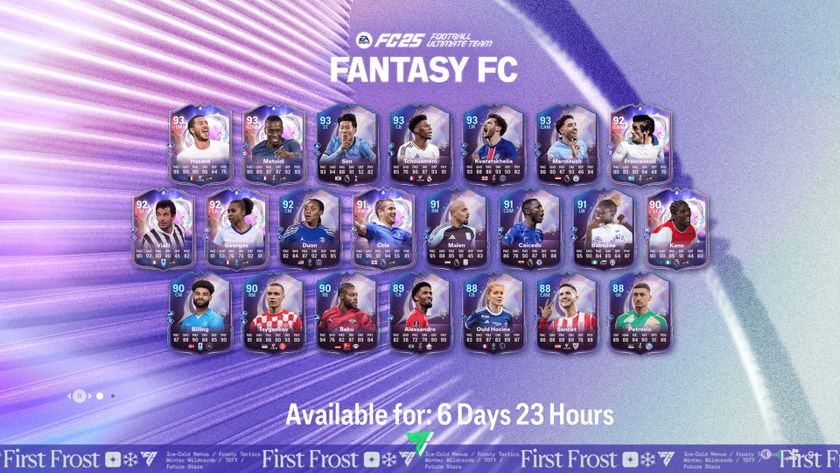After 6 years, a short-lived free-to-play shooter is back with a $20 price tag and zero microtransactions, and I need the whole industry to take notice
Opinion | Gigantic: Rampage Edition feels like a peek at a friendlier future for dead live service games
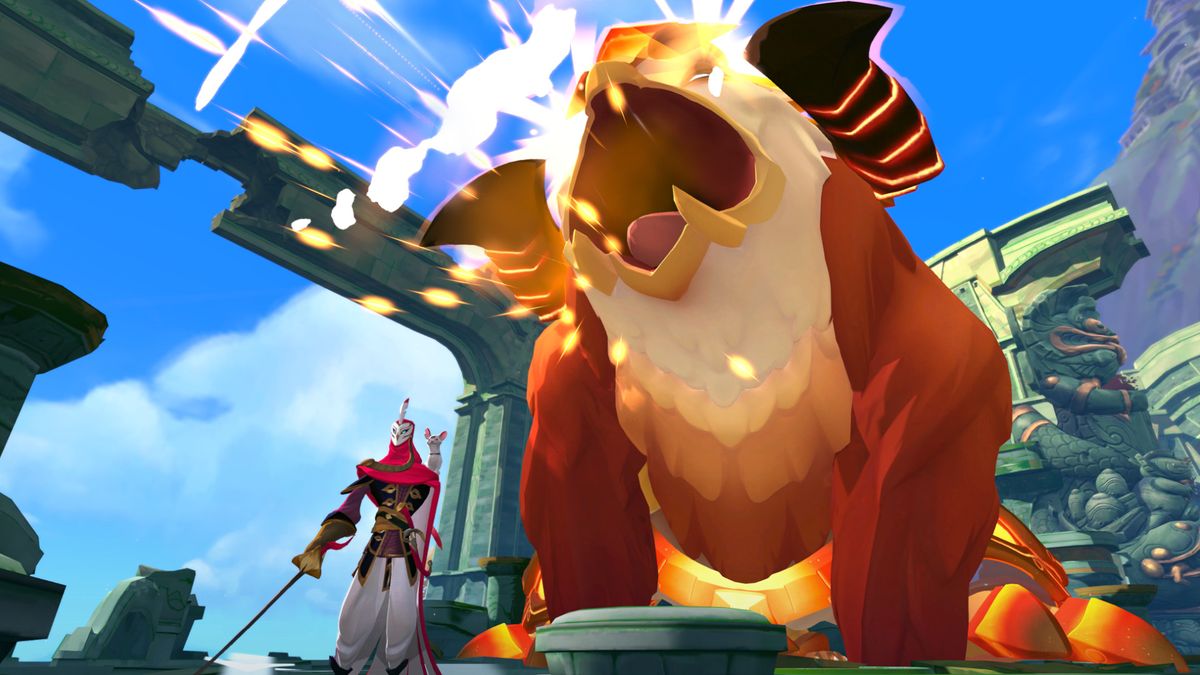
Six years after it was shut down, a cult classic hero shooter is making an unexpected comeback in the form of Gigantic: Rampage Edition. In the wake of increasingly desperate cries from a community of fans waiting for the game to get a second chance, Gearbox Publishing has provided that chance with what's turning out to be one of the most fascinating case studies in game preservation I've ever seen.
When else has a dead multiplayer game – much less a free-to-play live service title – been brought back to life? Sure, we've had historical versions of MMOs like World of Warcraft or RuneScape make comebacks, limited, short-lived revivals for games like Evolve, and an array of private server projects keeping other beloved online games alive. But a major relaunch from a major publisher for a game that didn't even make that much of an impact on the gaming world? Gigantic might just be one of a kind.
Rampage Edition takes the free-to-play original and repackages it as a standalone $20 game. There are no microtransactions this time around, and you can unlock everything just by playing the game. The old content is here, plus new characters and maps based on abandoned concepts from the original, as well as a new mode intended to offer a faster pick-up-and-play experience.
Gigantic is still very much a hero shooter with MOBA elements, and in the interest of full disclosure, those are two genres that hold very little interest for me. I had a good time checking out the game with a bit of hands-on preview time, but it'd be a, well, gigantic lie if I told you I expected to personally be playing much Gigantic when the relaunch hits on April 9. Despite that, the saga of Gigantic has been absolutely fascinating to me, and whether or not you've got any nostalgia for its original run, the potential it implies for other lost multiplayer games is tough to ignore.
Riding the wave
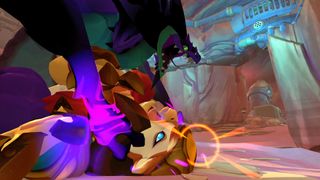
The game industry moves through genre fads in waves, and in 2017, prior to the battle royale boom, the genres du jour were MOBAs and hero shooters, or, in some cases, a combination of the two. Overwatch proved to be a massive success, while other projects like Battleborn – ironically developed by Gearbox, whose name is now on Gigantic: Rampage Edition thanks to a series of corporate buyouts and restructures – flopped hard in the face of so much competition.
Gigantic was in development at an independent publisher called Motiga long before Overwatch became a phenomenon, and was originally scheduled to be published by Microsoft for PC and Xbox One in 2015. But judging by the numerous articles about delays, layoffs, and publisher switches that followed the game's production, things were not exactly going smoothly. As the game continued development in the public eye thanks to various alphas and betas, it eventually, finally, made it to market published by Perfect World Entertainment on July 20, 2017.
It was a proper MOBA-meets-hero-shooter hybrid, where you played it as a third-person shooter but spent much of your time managing the battlefield more strategically, waiting for openings to go attack the opposing team's base. Gigantic launched to decent reviews and some genuine enthusiasm from players. But amid all the competition in this genre space it couldn't maintain much of a community. By November, Perfect World had shut down Motiga. On July 31, 2018 – almost exactly one year after launch – Gigantic's servers were taken offline.
Sign up to the 12DOVE Newsletter
Weekly digests, tales from the communities you love, and more
"Still think about you sometimes"
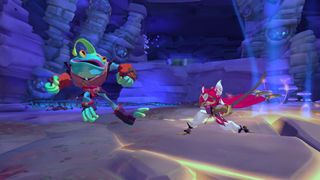
The stories of a whole lot of multiplayer games would end there. But while the Gigantic community wasn't big enough to keep the game alive, fans never really gave up the torch. Places like Reddit or the game's Steam discussion forums kept up a surprising amount of activity over the years, with players occasionally jumping in to talk about how much they missed the game or how much they wanted it to make a comeback, and there'd be an absolute chorus of agreement every time.
Maybe the most obvious place to take the temperature of the community is over on the Steam review page, where you've got players professing their love for Gigantic like an ex they've never quite gotten over. You can see just a handful of those reviews below, but this sentiment goes on for thousands and thousands of user ratings.
- "still think about you sometimes"
- "PLEASE FOR THE LOVE OF GOD COME BACK"
- "babe come back i miss you"
- "im sorry i took you for granted"
- "When I win the lottery, I'm bringing this game back."
Then, suddenly, in October 2023, Gigantic players began to get emails inviting them back to a "limited time throwback event." For just one weekend, Gigantic was back, and while the promotional materials for that event were careful never to promise anything more than that, it was tough to imagine this was anything but a testbed for a potential revival. But after the event ended and Gigantic went silent, the community took on a level of desperation for news that would rival that of the long-suffering Hollow Knight fandom.
Of course, it's now clear that Gigantic is getting a proper revival in the wake of that throwback event, and you can thank a complicated series of corporate maneuvers under the Embracer Group umbrella for it. The Swedish megacorp's massive acquisition spree dominated industry headlines for ages, and in 2021 the company, er, embraced both Gearbox Entertainment and Perfect World Entertainment. (Perfect World Entertainment, rather confusingly, was merely a subsidiary of the massive Chinese publisher Perfect World.) The two entities were then merged, with Perfect World Entertainment becoming a wing of Gearbox's third-party publishing label. Thus the rights to Gigantic came under the Gearbox umbrella, where they apparently met with some big ideas for how to stage a comeback.
An unexpected return
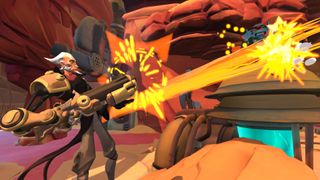
The original devs at the now-defunct Motiga aren't directly involved in the development of the new Rampage Edition, but in preview materials provided to press, Gearbox noted that some members of the original studio were consulted for this new version. "While Motiga did not serve as a co-developer for Rampage Edition, members of the team did play a role in the ideation process for content development with this new release. Gearbox Publishing consulted with the team members of the Motiga team, including Chris Chung, to make sure Rampage Edition stayed true to the original while being a fresh take on the game by introducing new content, such as new heroes, that Motiga originally planned to release."
I played three rounds with the devs in Rampage Edition's new Rush mode, a fast-paced version of the core mode (which is still here, but now called Clash) that streamlines some of the more advanced gameplay mechanics for matches you can complete in well under 15 minutes. I could flail about trying to offer some meaningful insight about my experience, but the reality is I don't have all that much to say. Gigantic still plays well at its core and I had a good time, but 40 minutes or so is not nearly enough time to develop much of an opinion about the balance or strategy of a game with this many moving parts.
What I can say is that the new progression system feels like an absolute godsend. Gigantic was originally a free-to-play live service title, filled to the brim with microtransactions. Rampage Edition is a flat $20 purchase that lets you unlock absolutely everything just by playing the game. Completing Fortunes – achievements for things like completing matches or making use of particular heroes – gets you XP and currency that you can spend on new cosmetics and hero abilities.
The best part is that most Fortunes are static. There's a selection of missions that rotate weekly, but you've got piles upon piles of challenges that are always available for you no matter what, entirely separate from any FOMO-induced pressure to keep playing. I can't help but pine for a version of, say, Overwatch 1 that packaged up all its original content in such a friendly form.
The real second life
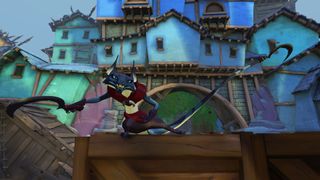
That's the thought I keep coming back to with Gigantic: I wish every live service game got a package like this at the end of its life. No game can live forever, and while Gigantic's life was shorter than most, it's the one getting a definitive re-release years after the fact. What if we could get something like Rampage Edition for everything from Overwatch to Babylon's Fall? What if, decades from now, there was a $20 collection of Fortnite Chapter 1?
It's a fascinating new note in the topic of game preservation, since there've been no substantial answers on just what the heck we're going to do with all these online games that keep shutting down. It's important to remember that games being available to players is just a small part of preservation, since the story of a game like Gigantic is as much about its development and community as the content of the game itself. But here, Gigantic's cultural context is decently well-preserved online – something I hope this article helps cement – and it's only now that the actual game is getting preserved, too.
I only question how long this version of Gigantic is going to stick around. You remember when 2K Games brought the peer-to-peer services for its defunct shooter Evolve back online in 2022? A year later, those servers were taken right back down. How long will this version of Gigantic stay online? There are plans for some post-launch updates, including a ranked mode and additional skins, but what line does the player count have to reach for official support to dry up? And will fans have the option to shoulder the work of hosting servers themselves, as we saw with the forward-looking private server release of Knockout City?
I recognize that I'm asking questions that I don't really believe Gigantic: Rampage Edition is equipped to, or that it ever even intended to, answer. This is a lavish opportunity for a well-liked multiplayer game to get a second chance separated from the baggage of its original launch, and an opportunity to sell that game back to its original fans with something more friendly than the ol' free-to-play grind. The whole project is just so fascinating to me that I can't help applying it to a much larger idea, and at a minimum, I hope other publishers sitting on the rights to dead multiplayer games can give them something better than the grave of a dusty old hard drive.
The genre's day in the sun might be over, but many of the best MOBAs are still open for business.

Dustin Bailey joined the GamesRadar team as a Staff Writer in May 2022, and is currently based in Missouri. He's been covering games (with occasional dalliances in the worlds of anime and pro wrestling) since 2015, first as a freelancer, then as a news writer at PCGamesN for nearly five years. His love for games was sparked somewhere between Metal Gear Solid 2 and Knights of the Old Republic, and these days you can usually find him splitting his entertainment time between retro gaming, the latest big action-adventure title, or a long haul in American Truck Simulator.
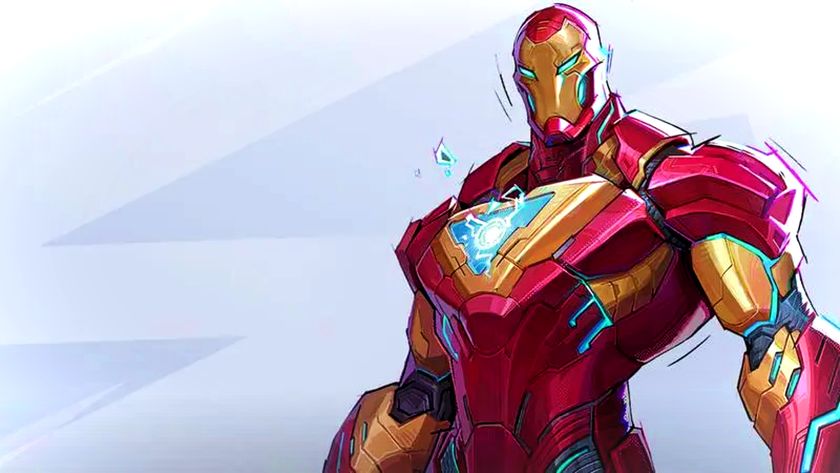
NetEase denies report that its CEO tried to cut Marvel from Marvel Rivals because he didn't want to pay Disney for the license
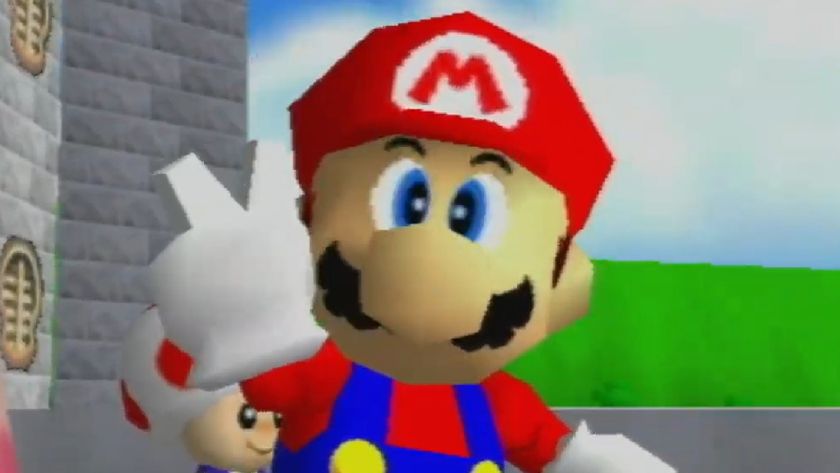
A week after suffering webcam tragedy, blindfolded Super Mario 64 speedrunner casually breaks 3 world records in 4 days: "Another day in the office, another world record"
Most Popular





